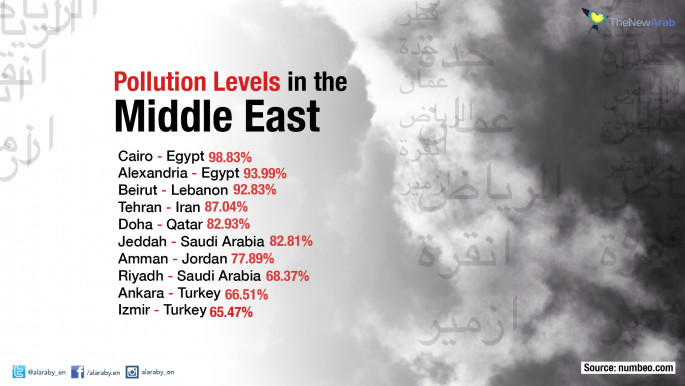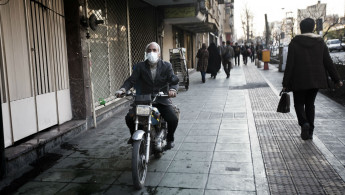A black cloud hangs over Iran
A blanket of smog has forced schools and nurseries in Iran's capital Tehran to shut their doors for three days.
Lessons were cancelled on Sunday, Monday and Tuesday, while pollution levels reached three times their acceptable level.
It is still unclear if schools will remain closed for the rest of the week, as the smog remains thick.
A government committee ordered the closure due to "polluted and unhealthy" weather, and in other large cities in Iran, children remained at home.
Toxic environment
Tehran is a rapidly growing city of 12 million inhabitants, and pollution has been a constant battle for residents.
Lying between a sweeping mountain range to the north and deserts to the south, Tehran is one of the most badly polluted cities in the world.
Millions of vintage, rusting cars and motorcycles cough up smog, which gets trapped among buildings and sitting on streets.
Part of the problem is not just population and location, but also international relations.
Sanctions have led the government to refine oil in crude ways, producing petrol which is low-quality and highly toxic, which keeps the country running.
Former President Mahmoud Ahmadinejad's policy on not bowing to Western pressure through a self-sufficient economy with a few anti-imperialist - often technologically poor - trading partners.
Tehran's five million cars cause 80 percent of the city's pollution with industry and domestic fires contribute the remaining 20 percent.
Sanctions
Smog becomes so thick that it blocks out the sky and conditions in summer time are said to be particular uncomfortable.
This is also leading to serious health problems and thousands of people are said to have died from respiratory illnesses.
"We cannot breathe. My eyes are itchy and my head hurts," one taxi driver told AFP.
"Traffic is getting worse each day, it is stifling. It is like there is a grey haze hanging over the city. We can't see the mountains."
Many hope that an end of sanctions will help fix this problem and save lives.
As new markets and goods open up, the country might finally begin to fix its rusting oil infrastructure and people will access to petrol-efficient cars from Japan and Europe.
This could help lift the dark cloud over the city's head, and lift the discomfort on the streets.
 |



